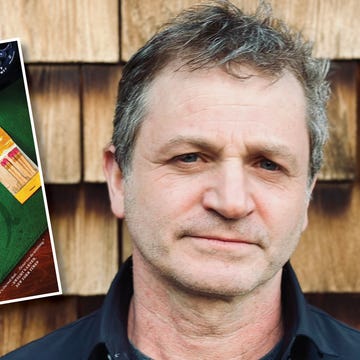How do Oakland’s untold stories and unexplored connections reveal truths about how the world works? In his new book, The Pacific Circuit, journalist Alexis Madrigal unearths the answers. In what’s sure to be a fascinating episode of Alta Live, Madrigal sits down with Alta Journal contributor William Deverell, who examined The Pacific Circuit for our weekly book review and found Madrigal’s analysis to be “a revelation.” Covering the city’s political landscape, history of segregation, and major connections to global commerce, the pair will dig into The Pacific Circuit and share important new perspectives on the other city by the bay.
About the guest:
Alexis Madrigal is a journalist who lives in Oakland, California. He is the cohost of KQED’s current affairs show, Forum, and a contributing writer at the Atlantic, where he cofounded the COVID Tracking Project. Previously, he was the editor in chief of Fusion and a staff writer at Wired. Madrigal is the author of Powering the Dream: The History and Promise of Green Technology. He has been a visiting scholar at UC Berkeley’s School of Information and UC Berkeley’s Center for Science, Technology, Medicine and Society as well as an affiliate with Harvard University’s Berkman Klein Center for Internet and Society. He is the proprietor of the Oakland Garden Club, a newsletter for people who like to think about plants. He was born in Mexico City, grew up in rural Washington State, and went to Harvard University.
About the book:
In The Pacific Circuit, the award-winning journalist Alexis Madrigal sculpts an intricate tableau of the city of Oakland that is at once a groundbreaking big-idea book, a deeply researched work of social and political history, and a vivid rendering of the defining themes of the 21st century.
Oakland’s stories encompass everything from Silicon Valley’s prominence and the ramifications of a compulsively digital future to the underestimated costs of technological innovation on local communities—all personified in this changing landscape by the city’s lifelong inhabitants.
The Pacific Circuit holds a magnifying glass to the legacies etched by generations of systemic segregation and the ceaseless march of technological advancement. These are not just abstract concepts; they are embedded in the very fabric of Oakland and its people, from dockworkers and community organizers to real estate developers and businesspeople chasing the highest possible profits. Madrigal delves into city hall politics, traces the intertwining arcs of venture capital and hedge funds, and offers unprecedented insight into Silicon Valley’s genesis and growth, all against the backdrop of Oakland—a city vibrating with untold stories and unexplored connections that can, when read carefully, reveal exactly how our markets and our world really function.
About the moderator:
William Deverell is the codirector and founding director of the Huntington-USC Institute on California and the West and a professor of history at USC. He is also the founding director of the USC Libraries Collections Convergence Initiative. He is a historian of the 19th- and 20th-century American West. His undergraduate degree in American studies is from Stanford, and his MA and PhD degrees in American history are from Princeton. He has published widely on the environmental, social, cultural, and political history of the West.
Here are some notable quotes from today’s event:
- On seeing Oakland as home: “I guess about 15 years ago, I moved to Oakland, and it’s probably the only place that I’ve ever felt like it was home for me. When I got to Oakland, we moved here, and just moving in the city, being in the city, I was like, this is it, I’m done, this is my place. And some of it is the topography. A lot of it is the people and the particular mix of cultures that we have here and histories. It’s just kind of a beautiful, thrilling place. There’s so many interesting thinkers and interesting ways of being that exist within the city.”
- On the drive behind this book: “As I worked on this book, which took me nine years, I realized that actually, I probably wrote five books in the course of working on this one. But part of it was like, there is a central idea, a central premise, which is just that, what happened to this place?”
- On living in your city: “My worry is that we sleepwalked our way into a place where we no longer have the third spaces that we need for a vibrant city—that they just don’t exist anymore. We’ve put all that stuff on some kind of digital rails, and it no longer circulates through our own local economies. The good thing is all you have to do is go patronize. You have to just be a resident of the city. That’s the answer. In some ways, there’s policy stuff you could do, there’s all kinds of stuff you could try and do, but a lot of the answer is inside, and I think that’s important. It’s important to recognize sometimes that there are things you can do, and all you have to do is live in your city for real.”
Check out these links to some of the topics brought up this week.
- Read “Two Prisms onto Oakland,” by William Deverell.
- Buy The Pacific Circuit, by Madrigal.
- Learn more of Oakland’s history through the Oakland Public Library.
- Visit the Oakland History Center.
- Check out There’s Always Work at the Post Office, by Philip F. Rubio.
- Tune into KQED’s Forum, Madrigal’s daily program with Mina Kim.
- Catch Madrigal at the SPUR Urban Center in San Francisco on June 11.
- Check out the Huntington-USC Institute on California and the West, where Deverell serves as the director.•











